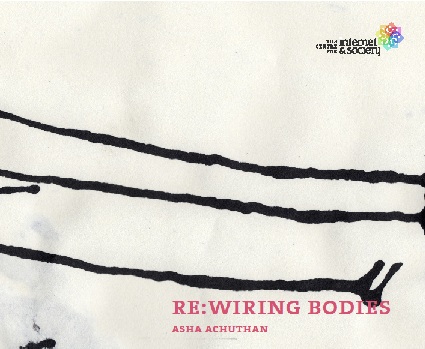Re:Wiring Bodies
-
RAW

Asha Achuthan
28 September 2011
Section I (Attitudes to Technology) attempts to trace the trajectories of the critiques of technology standing in for science in the Indian context. This section traces the methodology of critique itself that animates the political in India and shows the ways in which these critiques access anterior difference, the ways in which they posit resistance as providing the crisis to closure of hegemonic western science and the ways in which this resistance fails to meet the promise of crisis.
Section II (Mapping Transitions) explores in detail the responses to science and technology in feminist and gender work in India. Here, Asha presents an ‘attitude’ to technology as discrete from ‘man’. Feminist and gender work in India have articulated four responses to technology across state and civil society positions. These being the presence of women as agents of technological change, the demand for improved access for women to the fruits of technology, the demand for inclusion of women as a constituency that must be specifically provided for by technological amendments a need for recognition of technology’s ills particularly for women and the consequent need for resistance to technology on the same count.
Keeping in mind that woman’s lived experiences have served as the vantage point for all four of the responses to technology in the Indian context, Asha suggests the need to revisit the idea of such experience itself, and the ways in which it might be made critical, rather than valorising it as an official counterpoint to scientific knowledge, and by extension to technology. Section III (Working towards an Alternative) does not address the ‘technology question’ in a direct sense but makes an effort to make that exploration.
Asha concludes by saying that she treats technology as a part of the philosophy of modern western science and the relationship between technology and bodies is the more obvious relationship upon which the formulations of human-technology relationships are built.
Download the monograph here PDF, 2.58 MB]